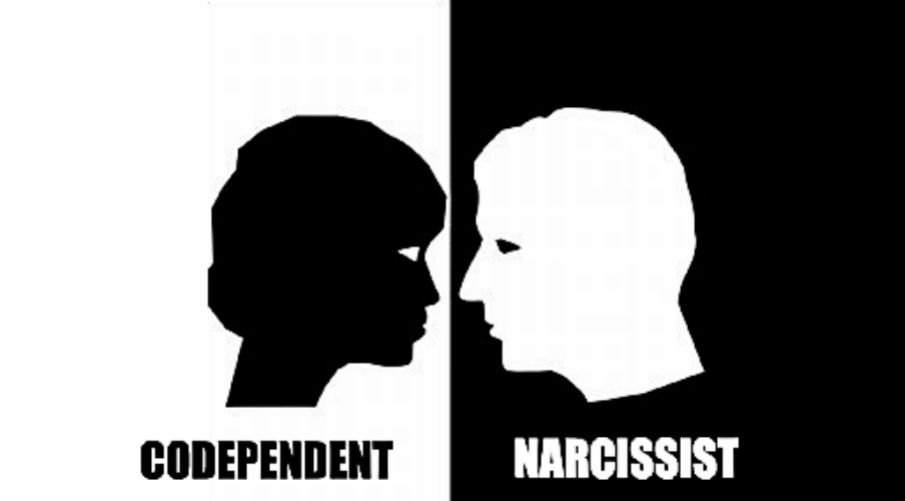Codependent narcissism is a term used to describe a relationship in which one person is excessively dependent on the other person for validation and self-worth. This type of relationship can be very damaging, as it can lead to emotional abuse and manipulation. In this blog post, we will discuss the traits of a codependent narcissist, and we will explore the difference between a codependent narcissist and a narcissist and a few other aspects as well.
Contents
- 1 Understanding Codependency
- 2 Knowing Codependent Narcissist
- 3 Spotting The Difference
- 4 Evaluating Dangers of Codependent Narcissism
- 5 Damaging Effects of Codependence Narcissism
- 6 Dealing With Codependent Narcissist
- 7 Talking To a Professional
- 8 Experts’ Opinion About Co-dependent Narcissism
- 9 Conclusion
- 10 A Word From Therapy Mantra
Understanding Codependency
Codependency is a relationship where one person relies on another to meet their emotional or psychological needs. A codependent relationship is characterized by a high degree of interdependence between people. There may be one person who relies on another to meet their emotional or psychological needs, while the other person feels that they are responsible for meeting those needs.
Codependency can exist in any type of relationship, including friendships and romantic relationships. One of the characteristics of codependency is that the people involved have an exaggerated sense of self-importance. They need constant validation from others to feel good about themselves, and they often put the needs of their partner before their own.
Knowing Codependent Narcissist
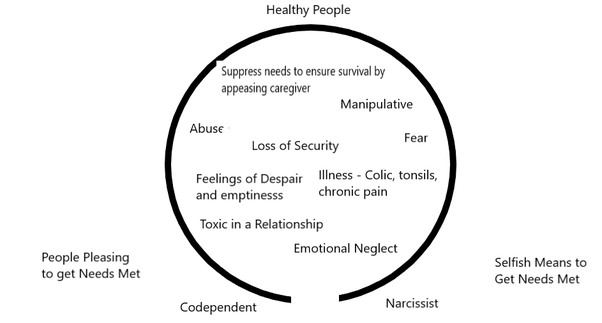
A codependent narcissist is someone who relies on another person for validation and self-worth. This type of relationship can be very damaging, as it can lead to emotional abuse and manipulation. It’s important to know what a codependent narcissist is so that you don’t fall into this trap.
Traits of Codependent Narcissist
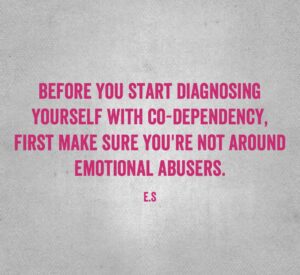
Codependent narcissists often have a history of being abused or neglected in childhood. They may also exhibit some of the following symptoms:
- Excessive need for approval: They need constant validation from others to feel good about themselves.
- Difficulty setting boundaries: They have a hard time saying no, and they often end up taking on too much responsibility.
- Feelings of emptiness and loneliness: They often feel empty and lonely, even when they are in a relationship.
- Inability to tolerate criticism: They can’t handle being criticized, and they will often react defensively.
- Manipulative behavior: They are experts at manipulating others to get what they want.
- Low self-esteem: They often have low self-esteem and a poor sense of self-worth.
Personality Types Prone To Codependent Narcissism
The following personality types are more prone to developing codependent narcissistic traits. People with:
- Borderline Personality Disorder: People with BPD are often very needy and dependent on others for emotional support.
- Narcissistic Personality Disorder: People with NPD tend to be very controlling, manipulative, and self-centered.
- Histrionic Personality Disorder: People with HPD often require attention and approval from others.
- Antisocial Personality Disorder: People with ASPD tend to be manipulative, deceitful, and lack empathy for others.
The Narcissistic Triangle of Codependency
The narcissistic triangle is a concept that describes the relationship between three people in an unhealthy codependent relationship. It can be used to describe relationships where one person has a strong desire for attention and validation from others, while another person feels a need to control or manipulate them into getting what they want.
Codependent narcissists tend to have one of three types of relationships with other people. Codependent Narcissists and their:
Partner: In this type of relationship, one person has a strong desire for attention and validation from others (the “codependent”) while another feels like they must control or manipulate them into getting what they want (the “narcissist”).
Parent: In this type of relationship, the codependent is usually seeking approval and validation from their parents while the narcissist is using them to get what they want (usually attention or control).
Child: In this type of relationship, the codependent is often seeking approval and validation from their child while the narcissist is using them to get what they want (usually attention or control).
Weapons Used By Codependent Narcissist
Codependent narcissists use a variety of weapons to control their partners. They include:
Triangulation: This is when the codependent narcissist makes you feel as if there are only two options, and they are both bad choices. You may be given an ultimatum such as “if you don’t do this then I’ll leave you.”
Gaslighting: This is a form of psychological manipulation where the codependent narcissist makes you question your sanity. They do this by telling lies and making false accusations, then denying it when confronted with the evidence.
Guilt trips: Another form of emotional abuse where they make their partner feel guilty for not doing what they want. They will often use phrases such as “you’re not a good partner” or “I can’t do this by myself.”
Emotional blackmail: This is when the codependent narcissist threatens to harm themselves if their partner doesn’t do what they want. They may say things like “I’ll kill myself if you leave me” or “I can’t live without you.”
Spotting The Difference
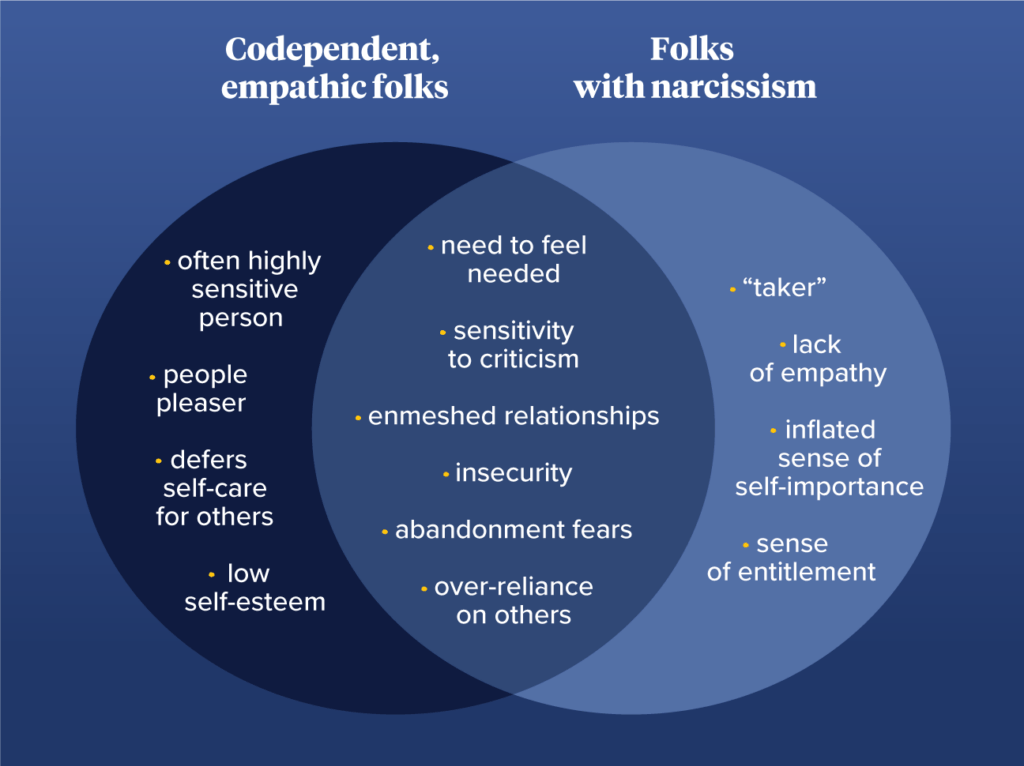
The key difference between a codependent narcissist and a narcissist is that the former needs constant validation from others to feel good about themselves. This need for external validation can lead them into abusive relationships, where they are manipulated by their partner or even abused physically.
In contrast, narcissists prefer to be alone because they believe that everyone else is beneath them. They don’t need anyone else’s approval or validation to feel good about themselves because they believe that they are better than everyone else.
Evaluating Dangers of Codependent Narcissism
Codependent narcissists can be very dangerous because they often end up in abusive relationships. Their partners may abuse them physically, mentally, or even sexually and take advantage of them financially as well. They are more likely to suffer domestic violence than other types of people because their need for validation makes it harder for them to leave an abusive relationship.
Physical Abuse
The codependent narcissist will hit, slap, punch, kick or otherwise physically harm their partner. They may also threaten to kill them if they don’t do what they want. This can be very dangerous because not only does physical abuse cause injury but it also causes psychological damage which can lead to depression and suicidal thoughts.
Mental Abuse
The codependent narcissist will often verbally attack their partner, calling them names and making them feel inferior. They may also use threats or intimidation to control their partner’s behavior. This type of abuse can cause a great deal of psychological damage and lead to low self-esteem and depression.
Sexual Abuse
Codependent narcissists are often sexually abused by their partners. This can involve unwanted touching, rape, or any other type of sexual contact without consent. Sexual abuse is very harmful and can lead to long-term psychological damage.
Financial Abuse
The codependent narcissist’s partner may use their power and control to take advantage of them financially. They may force them to hand over all their money, or they may make them do all the household chores so that they don’t have any time to work. This can leave the codependent narcissist feeling helpless and trapped.
NOTE: It’s important to remember that no one deserves abuse and you should get out as soon as possible! It’s also important to know that being in a relationship with a codependent narcissist is not your fault. They are the ones who choose to behave this way, not you. You don’t deserve this kind of treatment from anyone!
Damaging Effects of Codependence Narcissism
Codependent narcissism can be very damaging to both the people involved and to their relationship. The biggest danger of codependence narcissism is that it can lead to emotional abuse and manipulation.
Emotional Abuse
Emotional abuse is a form of abuse that involves damaging or manipulating someone’s emotions. It can involve making someone feel worthless, unintelligent, ugly, or stupid. Emotional abuse can be very damaging and can lead to low self-esteem and even depression.
Codependent narcissists use emotional abuse to manipulate the people they’re in relationships with. They may say things like, “You don’t deserve to be loved” or “I’m not good enough for you”. These statements can make someone feel worthless and unloved. And can lead them into an abusive relationship where they are manipulated by their partner or even abused physically.
Manipulation
Manipulation is a form of psychological abuse in which one person uses their power to control another person’s behavior. The manipulated individual feels as though they have no choice but to do what the manipulator wants. Because if they don’t, then something bad will happen to them (like getting fired from work, losing their children in a custody battle, etc.).
Codependent narcissists use manipulation to control the people they’re in relationships with. They may say things like “You don’t deserve to be loved” or “I’m not good enough for you”. These statements can make someone feel worthless and unloved, which can then lead them into an abusive relationship.
The Obstacle In Moving On
Codependent narcissists have a unique and destructive relationship dynamic that is often difficult to break free from.
- Codependents need validation and attention from others to feel good about themselves,
- While narcissists only care about themselves.
This leads to codependents constantly trying to please the narcissist to get the validation they need, while narcissists will use and abuse the codependents for their gain.
Dealing With Codependent Narcissist
If you are in a relationship with a codependent narcissist, the best thing you can do is:
Set boundaries: Set clear boundaries and make sure that the codependent narcissist knows what you will and won’t tolerate.
Be firm: Don’t let the codependent narcissist push you around or manipulate you into doing things that don’t make sense for them.
Keep your distance: Keep your distance from the codependent person as much as possible and only see them when necessary. If they try to contact you, ignore their calls/texts/emails until they stop calling.
Seek support: Talk to someone who can help you deal with the codependent narcissist in your life. This could be a therapist, friend, or family member.
Get professional help: If the codependent narcissism is causing significant emotional damage, then it’s best to seek professional help. A therapist can help you understand and deal with the codependent narcissist’s behavior.
Talking To a Professional
If you’re struggling to deal with a codependent narcissist, talking to a professional can be helpful. As therapists have the training to help people deal with difficult situations and relationships. They will be able to provide you with support and guidance as you work through your relationship with the codependent narcissist.
Therapy Options
There are a few different therapies that can be helpful for people who are in relationships with codependent narcissists. These therapies are:
Cognitive-behavioral therapy (CBT): CBT is a type of therapy that helps you change the way you think and behave. It can be helpful for people who have problems with emotional abuse, manipulation, and codependent narcissism.
Dialectical behavior therapy (DBT): DBT is a type of therapy that helps you learn how to manage your emotions and deal with difficult situations. It can be helpful for people who have problems with emotional abuse, manipulation, codependent narcissism, and self-harm.
Group therapy: Group therapy is a type of therapy that takes place in a group setting. It can be helpful for people who have problems with emotional abuse, manipulation, codependent narcissism, and relationship issues.
Experts’ Opinion About Co-dependent Narcissism
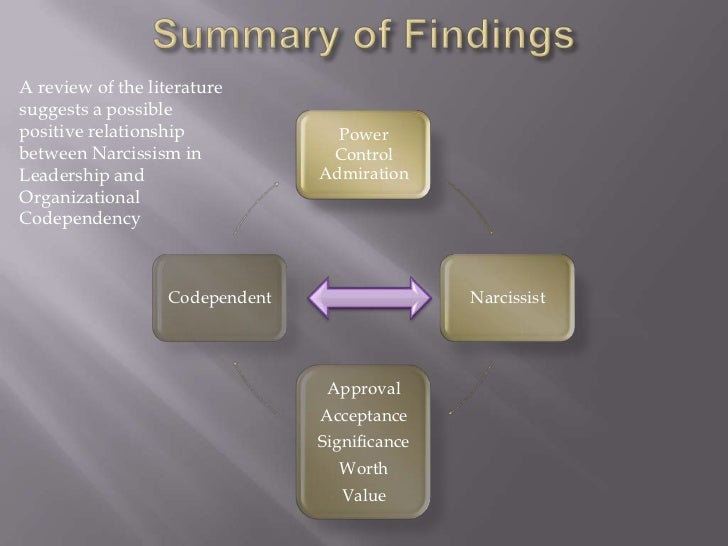
There is still some debate among experts about whether or not codependent narcissism exists as a separate disorder. Some experts believe that it’s just a subtype of narcissistic personality disorder, while others believe that it’s a distinct disorder. However, there is general agreement that codependent narcissism is a dangerous and damaging relationship dynamic.
Dr. Ramani Durvasula
According to Dr. Ramani Durvasula, a licensed clinical psychologist and professor at California State University: “Many codependents can be narcissists themselves but only if you get them caught up in something personal,” she says. “A true codependent narcissist is someone who only functions in the world when they are being given attention. They have no other interests, and their partner is often an extension of themselves.”
Dr. Joseph Burgo
Dr. Joseph Burgo, a psychologist who specializes in narcissism and codependency, says that: A co-dependent person needs someone else to feel good about themselves while a codependent person doesn’t need anyone else to feel good about themselves. Co-dependent narcissism is a type of codependency, while codependency is not limited to relationships with narcissists.
The Key Take Away
The codependent narcissist relationship dynamic is often very difficult to identify, especially as the people involved may not be aware of it themselves until after some time has passed since their initial meeting. If you think that you might be a codependent narcissist, then you should seek professional help from a therapist or counselor.
Conclusion
Codependency and narcissism are two sides of the same coin. The codependent person feels worthless without their partner while the narcissistic person is arrogant and believes they can do no wrong. Both types of people need to work on themselves before they can ever hope to have a healthy relationship with someone else.
The codependent narcissist relationship dynamic is often very difficult to identify, especially as the people involved may not be aware of it themselves until after some time has passed since their initial meeting.
It’s important for those who are in relationships that are dysfunctional or abusive to seek out help, before things get too far and beyond control. If you think that you might be a codependent narcissist, then you should seek professional help from a therapist or counselor.
A Word From Therapy Mantra
Your mental health — Your psychological, emotional, and social well-being — has an impact on every aspect of your life. Positive mental health essentially allows you to effectively deal with life’s everyday challenges.
At TherapyMantra, we have a team of therapists who provide affordable online therapy to assist you with issues such as depression, anxiety, stress, workplace Issues, addiction, relationship, OCD, LGBTQ, and PTSD. You can book a free therapy or download our free Android or iOS app.
